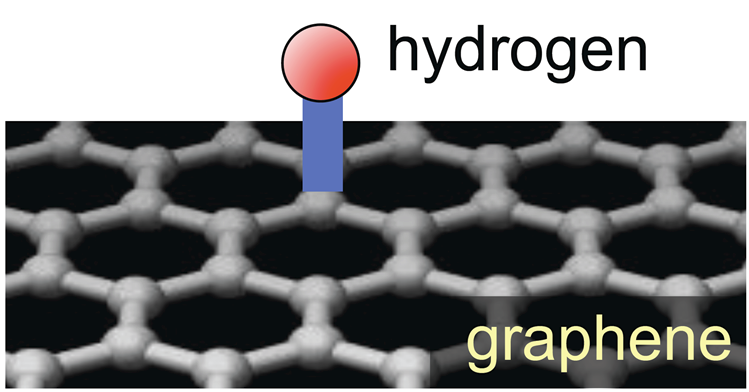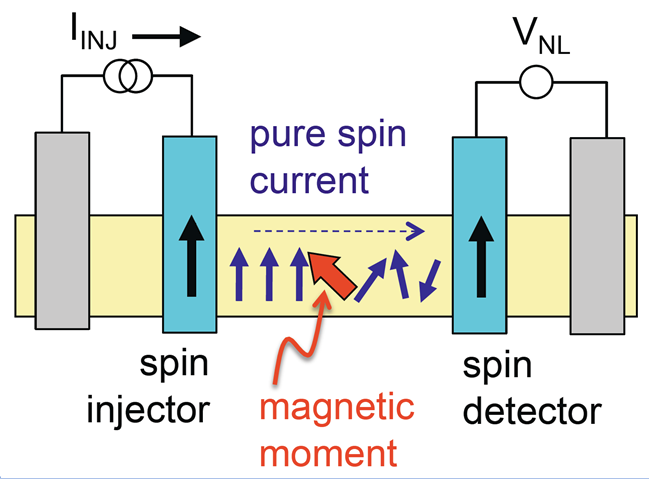Nonmagnetic elements turn graphene magnetic
- Physicists have predicted that
graphene, a single atomic sheet of carbon, could be turned magnetic simply by
attaching a hydrogen atom (or removing a carbon atom). However, detecting this
magnetism has been elusive due to many pitfalls that arise using traditional
methods.
- Kawakami has developed a new method
to detect magnetism in graphene. Pure spin currents are injected into graphene,
which then depolarize in a particular and recognizable way if magnetic moments
are present. This experiment provides the clearest evidence to date that
hydrogen adatoms (or lattice vacancies) generate magnetism in graphene.
- In addition to its impact on
fundamental physics of magnetism and quantum mechanics, this work also has
important ramifications on spin-based electronics for magnetic sensing and
advanced computers.



